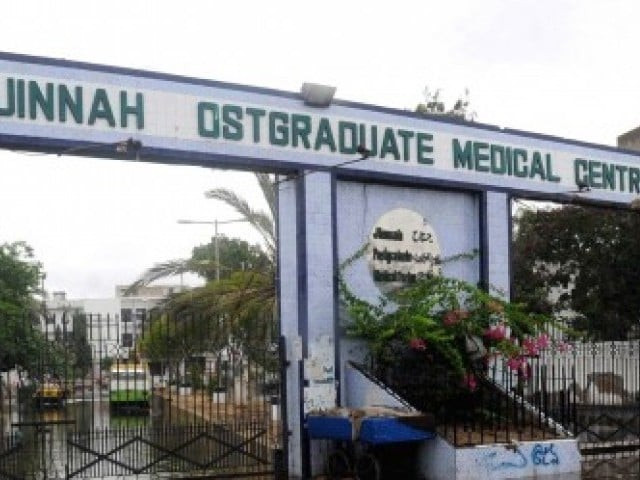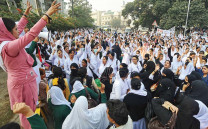Healthcare and education: 57 Jinnah hospital teachers join JSMU for a year
While they will draw salaries from the university exchequer, they can work in the clinical side of JPMC

PHOTO: FILE
The notification about them assuming charge was issued by Sindh health secretary Saeed Ahmed Mangnejo.
JSMU vice-chancellor Prof SM Tariq Rafi confirmed that the faculty members have joined JSMU and that they will draw their salaries from the university exchequer. However, they will be allowed to work in the clinical side of JPMC.
Rafi said that the teachers who have joined JSMU will be provided with research, teaching and training grants. He said that all the teachers have been promoted from their previous designations as they have now become part of the teaching university, which is usually a higher grade.

"Hiring of professors in JSMU was a requirement of the [Pakistan Medical and Dental Council] PMDC," he said. "Besides, the condition of the teaching staff for the university has reduced since 2010 when the process for the recruitment of the staff in JPMC was halted due to the stay order by the high court after the devolution of JPMC after the 18th Amendment. Out of the 28 professors of JPMC, only eight were performing their duties, resulting in the shortage of teaching staff for the university."
Rafi explained how, for 43 years, the teaching faculty of Sindh Medical College was provided by JPMC, National Institute of Child Health and National Institute of Cardiovascular Diseases. However, the up-gradation of the medical college to a university created the need to hire the varsity's own faculty for its various departments. "In three years, we have developed the pharmacy, public health, health and business management," he said. "Currently, we are planning to open the department of diagnostic service and a dental college, which needs our own teaching staff."
According to Rafi, the initial recruitment and hiring of staff took time when the university was made in 2012 after the bill was passed from the Sindh Assembly. "Earlier, we had to make new departments like examination, legal and medical education departments and expand the administrative department up to the university level," he said. "However, the system is now well-established and is in a stable condition."
Published in The Express Tribune, April 2nd, 2016.


















COMMENTS
Comments are moderated and generally will be posted if they are on-topic and not abusive.
For more information, please see our Comments FAQ